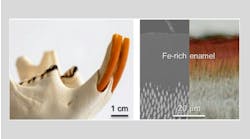Most employee recognition programs place a lot, if not all, of the responsibility for recognizing good work of team members squarely on the shoulders of managers. This is unfortunate and, actually, creates negative effects.
Calling attention to work done well by employees is definitely a good habit. When staff members feel valued for their contributions, a sense of loyalty and emotional engagement to the mission of the organization develops.
But focusing solely on managers to communicate appreciation to staff is an unrealistic goal that can create problems when it’s not attained:
• The manager feels burdened with trying to show appreciation to the team
• Members of the team become frustrated with their supervisor when they don’t feel they receive enough recognitio
• The supervisor becomes discouraged with his or her inability to encourage all team members consistentl
• An overall negativity and disappointment can develop in spite of the supervisor’s attempts to be positive and encouraging
Implication: Train team members to encourage and support each other
We learned the importance of peer appreciation when one of our training participants stated, “It’s fine for my supervisor to learn how to show appreciation to me. I need and want that. But I also want to know how to encourage Sarah [her colleague] when she’s having a difficult day.”
This and similar feedback led us to revise our training to include showing employees how to communicate authentic appreciation to their colleagues. The result? Positive communication and improved morale to a level we never imagined!
ALSO BY PAUL WHITE: Improving dental team morale through authentic appreciation
Don’t become a victim just because you work in a toxic workplace; help to better your dental office
Appreciation from a coworker can be as simple as, “Thanks for getting that report to me quickly, that’s really going to make it easy for me to pull together my presentation without having to rush at the last minute.” When team members feel valued by both their supervisor and colleagues, and when they accept responsibility to encourage and recognize the good work others do, a positive snowball effect occurs that is virtually impossible to stop.
However, it’s important to emphasize that shifting full responsibility to peers from managers is not a good idea. Managers need to lead by example, modeling acts of encouragement to their team, as well as provide the training and resources for coworkers to learn how to communicate genuine appreciation to each other. (Otherwise, the “do as I say, not as I do” approach will lead to increased cynicism and resentment toward the manager.)
Authentic appreciation communicated from both leaders and coworkers leads to a positive, supportive work environment that others will envy.








